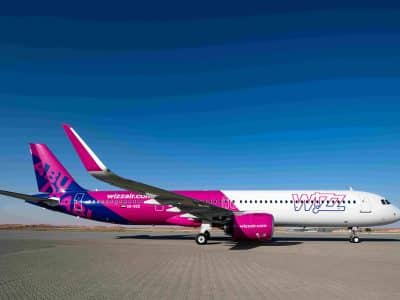It’s sometimes useful to remind ourselves just how central the travel and tourism sector is to the UAE’s economy.
According to the WTTC’s 2018 Annual Research report for the United Arab Emirates, the sector’s total contribution to the nation’s GDP was AED164.7 billion (US$44.8 billion), which is 11.1 percent of the total. That same year, the industry directly and indirectly accounted for some 611,500 jobs – or 9.6 percent of all employment in the UAE.
Of course, the world changed in March this year with the sudden appearance of the COVID19 virus. The global pandemic has had huge ramifications for many sectors, but it has been close to catastrophic for travel and tourism worldwide, not just in the UAE.
With the cessation of flights, the closure of hotels and restaurants and the large-scale job layoffs that accompanied them, it has arguably been the biggest single event to ever impact the sector – and it’s clear that this impact will still be felt for at least another 12 months.
As the restrictions begin to ease as we head into the autumn and the traditional high season for the UAE’s travel and tourism sector, there is an opportunity to demonstrate that the country is fully prepared to once again welcome the world and, in doing so, provide an important catalyst for the nation’s economy.
Considering the numbers above, it’s not unreasonable to suggest that the UAE – and indeed countries like Egypt and Jordan – will not enjoy a full recovery without the relaunch of this vital industry.
The good news is that the UAE government and several key stakeholders in the industry understand what is required for this to happen, and there have already been some very important steps taken to facilitate safe travel to, from and within the country.
In the first instance, through lockdowns, curfews and the permit system, the government moved quickly to limit the spread of the virus and control the infection rate – which has remained low. The infection rate here is currently around 0.6, while in many European countries it’s more than 1.
As a result, the UAE is one of the safest places in the world to visit and many facilities were able to continue operations and retain frontline staff despite the crisis. This was followed by the introduction of financial incentives by the UAE government and the central bank authorities, while tourism destination organisations also reduced many of their fees to the hotel sector.
What happens now, though, will determine the success of the next 12 months. Looking at the overall picture, I think it is important to outline five key areas that the whole sector ought to collectively prioritise.
1. Rapid-results testing
Testing is hugely important for the travel industry – not just here in the Gulf but worldwide. Investment in rapid-results testing is almost as important for the recovery of travel and tourism as the development of a vaccine. Right now, it is not possible to board an Emirates flight without having taken a test within the past 96 hours, but the process, while efficient, does not address those who may have become infected between testing and their flight.
Ideally travellers need a system whereby they are tested as part of the pre-check in process. They have the test in the airport two to three hours before the flight, wait for ten minutes and then, assuming that the results are negative, they can proceed to final check in. The advantages are numerous: peace of mind that all fellow passengers are Covid-19 free and the fact that quarantine at either end of the travel journey will not be required.
2. Safety protocols
The second part would be the widespread adoption of the safety protocols put forward by The World Travel & Tourism Council (WTTC) in collaboration with the World Health Organisation. Dubai Tourism and Commerce Marketing (DTCM), Ras Al Khaimah Tourism Development Authority and Yas Island in Abu Dhabi have all been awarded the “Safe Travels” accreditation, whereby all the destinations and the businesses within them commit to upholding this series of safety measures. In addition, companies such as Jumeirah have been awarded the Veritas Safeguard accreditation in many of their UAE hotels.
These internationally recognised accreditations provide confidence to guests and staff that the highest standards of safety and hygiene are applied – and that’s not just hotels, but entertainment centres, malls and other attractions. It is important that as many stakeholders as possible sign up to the programme and advertise their accreditation once received.
3. Insurance
The travel insurance element is hugely important to the leisure travel sector. In the UAE, Emirates took the lead in late July to become the first airline to provide free passengers’ health and quarantine costs if diagnosed with Covid-19 on their travels. The Irish government has also been proactive, agreeing to underwrite travel insurance policies in the event that a tour operator or travel agent ceases to trade through a Refund Credit Note system.
4. Marketing and communication
It has been encouraging to see UAE tourism boards, DTCM and Ras al Khaimah engaging global and domestic markets with incredibly powerful, exciting and interesting promotional campaigns to tell people that their emirate is open and safe. Allied with the “Safe Travels” badge, hopefully these efforts will continue and encourage people around the world to seek out the UAE when they’re planning their next vacation.
It’s also important that communication at a government-to-government level leads to the UAE being added to “green-list” countries in key source markets such as Europe. Considering the low infection rate and the ongoing safety measures in place, the UAE’s efforts should be recognised by countries around the world.
5. Collective responsibility
The fact that wearing masks and agreeing to temperature checks going into offices and malls is accepted by everyone in the UAE is something we can all be proud of. In some countries, it has become a political issue, which is absolutely ridiculous – and we see the impact that has had on cases and the government’s ability to control the spread of the virus.
In order to ensure that the whole economy, and in particular the travel and tourism sector, can look forward with optimism relies on everyone continuing to respect the regulations, understand the risks and work hard to mitigate the possibilities of infection. This virus won’t disappear overnight so it’s vital we all remain vigilant.
I am cautiously optimistic that with the ongoing cooperation of all stakeholders, from the government to the private sector to the destination management organisations, we can expect to see the beginning of a recovery in Q4 of this year. That means we should all be able to look forward to Expo2020 in October 2021 and to celebrating the Golden Jubilee of the United Arab Emirates.





